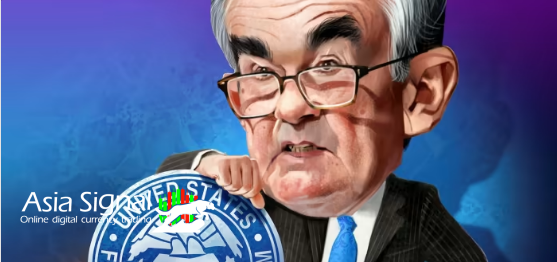Jerome H. Powell: Navigating the Complexities of Economic Stewardship
In the world of finance and economics, few names carry as much weight and significance as Jerome H. Powell. As the 16th Chair of the Federal Reserve, Powell's influence over the global economy is immense, his decisions impacting everything from interest rates to unemployment rates. With a background steeped in both private sector experience and public service, Powell's approach to economic stewardship reflects a nuanced understanding of the complexities and challenges inherent to the role he occupies.

From Investment Banking to Public Service
Born in Washington, D.C., on February 4, 1953, Jerome Hayden Powell's journey to becoming the Chair of the Federal Reserve was marked by a diverse range of experiences. Powell earned a bachelor's degree in politics from Princeton University in 1975 and later a law degree from Georgetown University in 1979. He began his career in the private sector, working in investment banking at Dillon, Read & Co. and later at the prestigious Bankers Trust Company.
Powell's transition from investment banking to public service was marked by his appointment as Undersecretary of the Treasury under President George H.W. Bush. During his tenure, Powell played a pivotal role in addressing the savings and loan crisis and gained valuable insights into the workings of economic policy on a national level.
Steadfast Leadership Through Economic Uncertainties
Powell's experience and expertise made him a natural choice when President Donald Trump nominated him to the Board of Governors of the Federal Reserve in 2012. His confirmation by the Senate marked the beginning of his influential tenure in shaping monetary policy for the United States.
Taking the reins as Chair of the Federal Reserve in February 2018, Powell faced a unique set of challenges. The global economy was still recovering from the aftermath of the 2008 financial crisis, and uncertainties loomed large, ranging from trade tensions to geopolitical unrest. One of the most notable aspects of Powell's leadership has been his adeptness at navigating these complexities with a steady hand.

A Pragmatic Approach to Monetary Policy
Powell's approach to monetary policy can be characterized as pragmatic and data-driven. Under his leadership, the Federal Reserve sought to strike a balance between supporting economic growth and ensuring that inflation remains in check. His tenure has seen both interest rate hikes and cuts, with the central bank closely monitoring labor market conditions and inflation trends.
One of Powell's significant achievements was the recalibration of the Fed's approach to inflation targeting. In August 2020, he announced a shift in policy that allowed for a more flexible stance on inflation, aiming for an average inflation rate of 2% over time. This shift acknowledged the need for accommodative monetary policy in the face of persistently low inflation, which was a departure from the previous approach of pre-emptively raising interest rates to curb inflation.
Communication and Transparency
Powell's communication style has also been widely appreciated. He initiated a practice of holding regular press conferences after Federal Open Market Committee meetings, enhancing the transparency of the Fed's decision-making process. This has allowed markets and the public to gain deeper insights into the central bank's rationale behind its policy decisions, contributing to a more informed and stable economic environment.

Challenges and the Road Ahead
While Powell's leadership has been largely applauded, he has not been without his critics. Some argue that the Federal Reserve's policies have contributed to income inequality and asset bubbles, leading to concerns about long-term economic stability. Moreover, as Powell's first term as Chair was set to end in 2022, discussions about his potential reappointment or the selection of a new leader garnered significant attention.
In conclusion, Jerome H. Powell's journey from investment banking to becoming the Chair of the Federal Reserve is a testament to his adaptability and expertise. His pragmatic approach to monetary policy, emphasis on transparency, and steady leadership during times of economic uncertainty have left an indelible mark on the global financial landscape. As the world continues to grapple with economic challenges, Powell's legacy is sure to be an important touchstone for future discussions on economic stewardship.
AsiaSignal is the best place to access the latest digital currency signals

















Comments